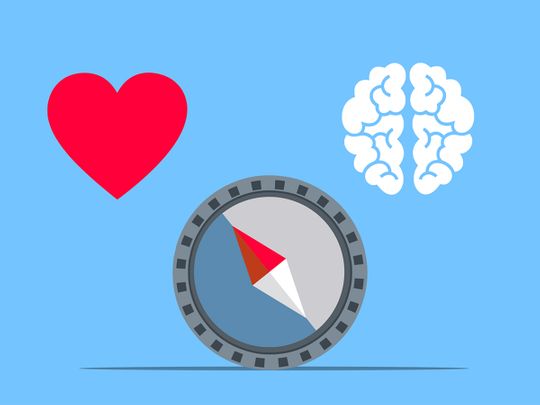
Intuition, or that unexplainable gut feeling, has often been thought of as a distinct human specialty.
Click start to play today’s Spell It, where you can create the word “intuition” with the letters provided.
In 1997, Russian grandmaster Gary Kasparov, the world’s best chess player at the time, lost to IBM’s Deep Blue supercomputer. Immediately, people began to analyse. They looked at the game – chess was all about rote combinations and strategies, unlike the ancient Chinese game of Go. An astrophysicist who was interviewed by the US newspaper The New York Times right after the match, was confident. He predicted that a computer would take hundreds of years to beat humans at Go. The game involved gut feelings – intuition that a computer just didn’t have.
Well, he was wrong – it took less than 20 years. In 2016, British artificial intelligence company DeepMind created a computer program called AlphaGo. It beat humans at the game of Go – over and over again.
So, what is intuition if it’s not an unexplainable phenomenon that’s unique to humans? According to a December 2019 report in US-based psychology news website Psychology Today, some psychologists think it is a form of pattern recognition, guided by genetics and habit rather than conscious reasoning.
Here are three other aspects of intuition that may surprise you:
1. Intuition doesn’t depend on how strongly you feel
The question of whether you should trust your gut feeling should depend not on how strongly you feel about something, but on the domain you are operating in, psychologists say. For instance, fire commanders can size up a burning building far more rapidly than a lay person, and can make lightning-fast, intuitive decisions in those moments. It’s because the commander has experience, and understands that fires follow the law of physics. Clear feedback helps hone intuitive decisions, which is why weather forecasters, test pilots and chess masters usually have more reliable expertise than psychologists, admissions officers and judges, according to the Psychology Today report.
2. Stress draws it out
Deliberation and reasoning are a luxury. In do-or-die situations, people tend to follow their instincts, and so it has been for hundreds of years, all the way back to when humans would have to survive in the wild. So, stress can cause you to make more intuitive decisions. Interestingly, psychological studies have found that sadness tends to make people think more analytically, as they switch to problem-solving mode.
3. Intuition can be improved
Just like honing any other talent, you can sharpen your intuition with practice. But there are a few things that have to be in place for this to happen. First, you have to be familiar and even experienced in your domain. Second, you need to see the results of your intuitive actions, and learn from them. Did you make an intuitive decision and was it a good one? Learning from past behaviour guides future actions. Third, you should understand limitations – having good intuition at work may not necessarily mean you’d have good intuition when navigating relationships, or making financial decisions.
Do you usually trust your gut feelings? Play today’s Spell It and tell us at games@gulfnews.com.







